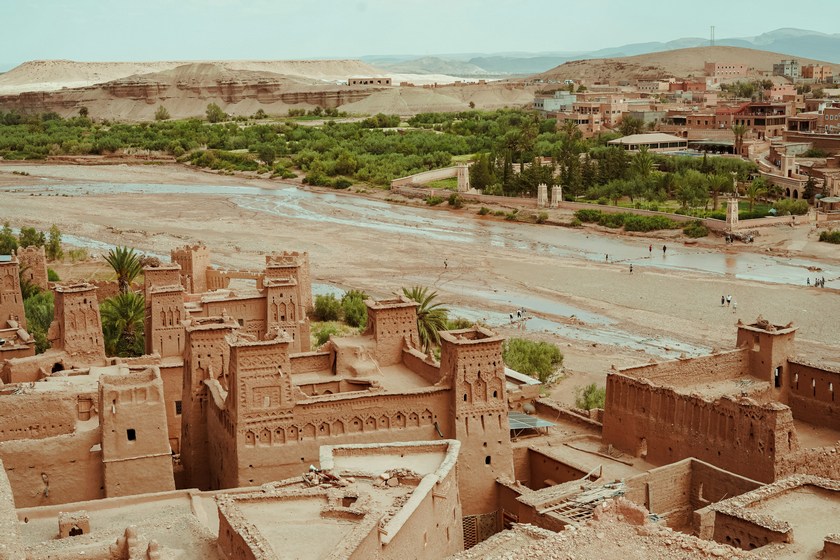Travel Tips for Morocco
Exploring the enchanting villages of the Atlas Mountains, venturing into the mesmerizing Sahara Desert, and immersing oneself in the vibrant medinas and bustling marketplaces—Morocco offers a captivating blend of diverse landscapes and a rich cultural tapestry. However, experiencing Moroccan life can be quite overwhelming for the average traveller, particularly in the bustling and densely populated areas.
First Impressions and Street Life
It’s quite an experience to come across intense exchanges in Arabic, exotic animals being led on a leash, motorcycles racing through the bustling alleyways, and locals trying to sell various products, all in a matter of moments. Amidst the colorful street scenes, you might even notice traditional restaurant furniture, intricately crafted and displayed outside small eateries, adding to the charm of the vibrant market atmosphere. Therefore, having a good grasp of the local customs in Morocco is essential to steer clear of confusion or potential scams.
Essential Tips for Travelling in Morocco
Here are some vital insights into local culture and practical advice that will help you enjoy your trip while travelling on a budget:
Cultural Insights
Understanding Moroccan Religion and Customs
For those who have never visited a Muslim country, it’s important to note that most Moroccans practice Islam. This cultural aspect adds a unique flavor to the country’s atmosphere. Throughout the day, you’ll be captivated by the enchanting sound of the call to prayer resonating from mosques.
Respecting Local Dress Codes
In Morocco, it is common for women to dress modestly and cover their bodies. Some women may choose to cover their hair and face as well. It’s fascinating to observe this respect for local customs, even at the beach, where women confidently embrace their style while maintaining modesty.

Dining Etiquette and Local Cuisine
When exploring new destinations, it’s often a delightful experience to savor the local cuisine. In Morocco, dishes like tagines are typically enjoyed using hands instead of cutlery. This unique dining experience involves mashing and scooping food with bread, which enhances the cultural immersion.
The Tradition of Mint Tea
Mint tea is a beloved drink in Morocco, enjoyed by locals and visitors alike. The preparation involves brewing fresh mint leaves in a traditional silver teapot, using boiling water. The fragrant tea is then poured into small glass cups, creating a delightful sensory experience.
Practical Travel Advice
Here’s some further advice for travellers to Morocco:
Embracing Moroccan Time
In contrast to many westernized societies, Moroccans often prefer a more relaxed approach to punctuality, which may include arriving fashionably late. Breakfast service typically begins no earlier than 8:30 AM, so plan accordingly.
Understanding Animal Exploitation
It is disheartening to witness mistreatment of animals for the sake of tourist entertainment. In Marrakech, horse-drawn carriages can be seen, which raises concerns about the treatment of the horses involved. Additionally, street performers sometimes exploit animals, highlighting the need for awareness and ethical considerations during your travels.
Wrap Up: How to Navigate Moroccan Traditions
I encourage everyone to refrain from endorsing any cruel treatment of animals. It’s crucial to remember that local customs and ways of life in Morocco may differ from your own. Despite these challenges, don’t let them dampen your spirits while travelling. I have not seen so many stray cats in any other place like Morocco, and it’s heartwarming to observe locals caring for these animals. It’s common to find food scraps left on street corners, supporting stray cats in the area.
What about you? Have you ever visited Morocco? Feel free to share any tips and advice below!
About Me
I am a passionate lover of exploration and sustainability. I embrace ecotourism and socially conscious travel while advocating for ethical practices. Travel means more than just experiences; it’s about fostering connections with nature and diverse cultures.




